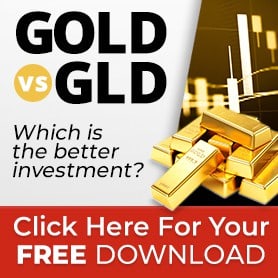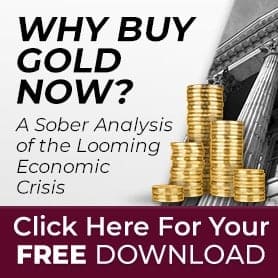By: Andrew Schiff, Director of Communications and Marketing
While the United States continues to throw its weight around diplomatic summits and global financial markets, Vladimir Putin has emerged as the most visible and active proponent of a post-dollar world.
A few months ago Putin had risked becoming a global pariah when his aggressive stance towards the Ukraine looked like it could unleash the second coming of the First World War. But when the U.S. failed to galvanize Western European opposition (in Germany in particular), and with the crisis failing to spread outside of a few flash points in eastern Ukraine, international attention soon drifted to other hotspots (Iraq, Israel).
But the tragic downing of the Malaysian airliner, more likely than not to be a mistaken attack by Ukrainian separatists, significantly complicates the situation for Putin and Russia, and further galvanized Western interests against him. However, the speed with which conclusions have been drawn about Putin’s culpability, despite conflicting evidence, may catalyze the convergence on non-western interests as well. Time Magazine highlighted this, quoting an official Chinese source as saying:
“The Western rush to judge Russia is not based on evidence or logic. Russia had no motive to
Putin, a former KGB colonel, is seeking to use the crisis to take the offensive against his old American nemesis. In particular, he has unveiled a series of concrete steps that he hopes will lead to the emergence of a Eurasian economic bloc that could operate outside of U.S. dollar-based control. The bounce-back in Russian equity markets since the steep Ukraine-related sell off in February and March, and the large U.S fines imposed on BNP Paribas, have provided him with some leverage.
 In May, a monster $400 billion energy supply deal was announced that would keep oil and gas flowing from Russia to China for years to come. As the deal was largely symbolic, many in the Western media took great pains to point out that it did not dictate that payment for the energy would be in currencies other than the dollar. But recent statements appear to be setting the stage for just that. On June 26, The Financial Times reported that Gazprom, Russia’s largest natural gas provider, announced that it would be considering issuing bonds in Asian markets denominated in RNB or Singapore dollars and listing shares on the Hong Kong Exchange. When explaining these moves, Gazprom’s chief financial officer Andrei Kruglov unsurprisingly characterized them as an effort to attract more Asian investors. However, he used the opportunity to say that “As for settlements in renmimbi or rubles, we are ready for this and we think it’s quite normal.”
In May, a monster $400 billion energy supply deal was announced that would keep oil and gas flowing from Russia to China for years to come. As the deal was largely symbolic, many in the Western media took great pains to point out that it did not dictate that payment for the energy would be in currencies other than the dollar. But recent statements appear to be setting the stage for just that. On June 26, The Financial Times reported that Gazprom, Russia’s largest natural gas provider, announced that it would be considering issuing bonds in Asian markets denominated in RNB or Singapore dollars and listing shares on the Hong Kong Exchange. When explaining these moves, Gazprom’s chief financial officer Andrei Kruglov unsurprisingly characterized them as an effort to attract more Asian investors. However, he used the opportunity to say that “As for settlements in renmimbi or rubles, we are ready for this and we think it’s quite normal.”
The FT went on to report that other Russian companies, including Norilsk Nickel, have stepped up talks on settling contracts and raising debt in currencies other than the dollar. In addition, Reuters reported on June 24 that Moscow is considering barring state-owned companies and other enterprises deemed to be “strategically important” from holding accounts at foreign-owned banks.Theoretically, this could protect Russian assets from the types of fines and penalties that the U.S. has been imposing around the world.
On a separate front, Russia has successfully exploited the disintegration of the fragile Iraqi state to further extend influence in the region. Moscow has long been the champion of the Shia governments in the Middle East (Syria and Iran) and has consistently opposed the interests of the U.S.-backed Sunni states of Saudi Arabia, Kuwait and Jordan. Russian power came into stark focus in Syria in 2012 when they were able to check Obama’s attempt to oust the Assad regime over reports of chemical weapons use. With the Obama Administration withdrawing support of the hapless Maliki government, the desperate Shia leader has turned to the Kremlin in its struggle against ISIS insurgents. In a jaw-dropping development, Maliki agreed to buy a package of Russian jet fighters and ground attack aircraft. And as if to show the contrast with the famously slow delivery of the American F-16 aircraft that the U.S. sold to Iraq back in 2011, the Russian equipment began arriving almost immediately.
If, as appears increasingly likely, Iraq will disintegrate into Sunni and Shia dominated enclaves, it is not difficult to imagine that Russia will extend its power beyond Iran, straight into Shia Baghdad. The influence would have been bought and paid for by American blood and treasure.
In the lead up to the Second World War, the Western democracies foolishly took for granted that Russia could always be counted on to oppose Nazi Germany. But crafty German diplomacy resulted in the Hitler/Stalin Non-Aggression Pact of 1939, thereby shaking Russia loose from the Alliance. This blunder set the stage for a very different world order. (Only Hitler’s unprovoked invasion of Russia in 1941 succeeded in bringing Stalin back to the Allies).
Today the roles are reversed. Germany is the swing vote in the new economic struggle. And as discussed in an earlier article in this newsletter, Germany is chafing in its role as a loyal soldier supporting U.S. interests. In a July opinion piece for Reuters, Ian Bremmer, the founder of the respected geopolitical risk consultancy firm Eurasia Group said, “Germany is alarmed by the United States’ tendency to use its economic clout as an extension of its foreign policy, one that the Germans see as increasingly fickle, opaque and misaligned from their own.” If Russia and China can manage to pull the increasingly frustrated Germans away from the dollar-based world of infinite monetary stimulus and heavy-handed financial enforcement, the United States will face a very difficult road ahead. Market watchers would be well-advised to keep a close watch on Vladimir Putin.










